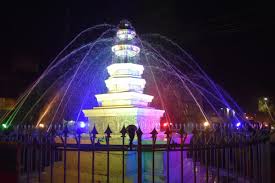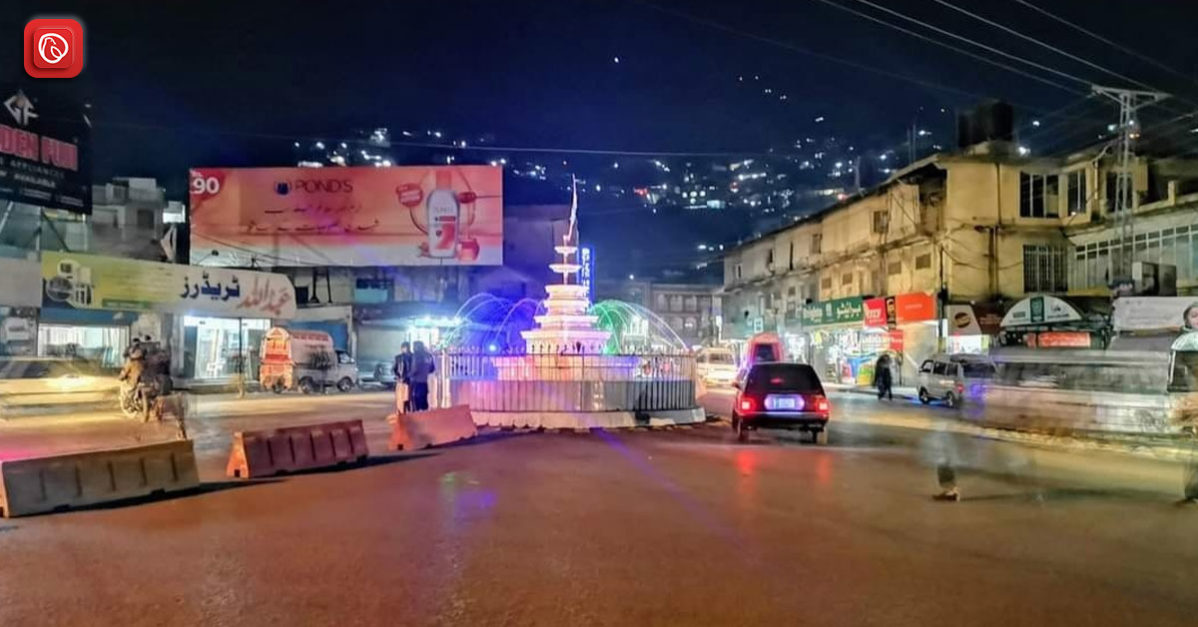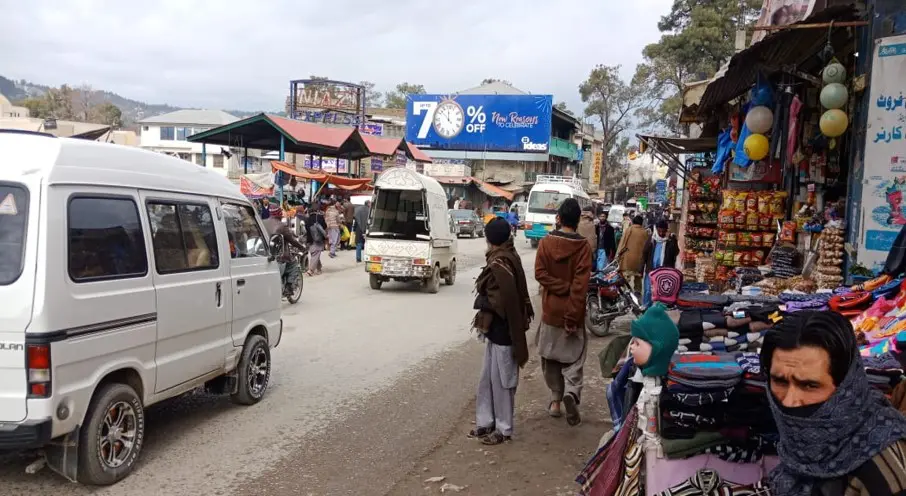Situated in the picturesque Hazara region of Khyber Pakhtunkhwa (KPK), Pakistan, lies the city of Abbottabad. Known for its serene beauty, cool climate, and historical significance, Abbottabad is a treasure trove of culture and heritage. At the heart of this city is Fawara Chowk, a bustling junction that serves as a focal point for locals and visitors alike.
This blog by Graana.com delves into the significance of Fawara Chowk, exploring its history, cultural importance, and the vibrant life that revolves around it.
Historical Significance
Fawara Chowk, often translated as “Fountain Square,” derives its name from the iconic fountain that once stood at its centre. The fountain, a relic of the British colonial era, symbolised the aesthetic and architectural inclinations of the time. Abbottabad itself was founded in 1853 by Major James Abbott, a British colonial officer.
The city’s layout and infrastructure were designed to serve as a summer retreat for British officials, taking advantage of the region’s pleasant weather and scenic beauty. The fountain at Fawara Chowk was not just a decorative piece but a gathering point for the community.
Over the years, it became a symbol of the city’s identity, reflecting the confluence of colonial and local influences. Though the original fountain no longer stands, the area retains its historical charm, with remnants of the past subtly interwoven into the fabric of modern Abbottabad.

Cultural Hub
Fawara Chowk is more than just a historical landmark; it is a cultural hub that embodies the spirit of Abbottabad. The square is a melting pot of diverse cultural expressions, where the old meets the new. On any given day, one can witness a myriad of activities, from street vendors selling traditional foods and crafts to youngsters engaging in lively conversations and socialising.
The chowk is particularly vibrant during festivals and local celebrations. During Eid, for instance, the area comes alive with colourful decorations, lights, and the sounds of traditional music. People from all walks of life gather here to celebrate, creating a sense of unity and communal harmony. The chowk also hosts various cultural events, such as folk music performances, art exhibitions, and literary gatherings, further cementing its status as the cultural heartbeat of Abbottabad.
Commercial Lifeline
In addition to its cultural significance, Fawara Chowk plays a crucial role in the commercial landscape of Abbottabad. The area is a bustling marketplace, with shops and businesses lining the streets. From traditional handicrafts and textiles to modern clothing and electronics, the chowk offers a diverse range of products catering to the needs of locals and tourists alike.
One of the unique aspects of shopping at Fawara Chowk is the opportunity to experience the traditional bargaining culture. Vendors and customers engage in friendly haggling, a practice that adds to the charm of the shopping experience. This vibrant commercial activity not only supports the local economy but also preserves the traditional way of doing business, which has been passed down through generations.
Architectural Heritage
Fawara Chowk is surrounded by buildings that reflect the architectural heritage of Abbottabad. The blend of colonial-era structures and modern developments creates a unique skyline that tells the story of the city’s evolution. Among the notable buildings is the iconic Abbottabad Clock Tower, a remnant of the British colonial period, which stands as a testament to the city’s historical significance.
Walking through the streets around Fawara Chowk, one can observe the intricate designs and details of the old buildings, which showcase a mix of British and local architectural styles. These structures, with their ornate facades and elegant balconies, provide a glimpse into the past and highlight the architectural prowess of the era.
Residential Areas Near Fawara Chowk
Fawara Chowk, with its historical and cultural significance, is not only a central landmark but also surrounded by several prominent residential areas in Abbottabad. These neighbourhoods offer a range of living options, from traditional homes to modern apartments, catering to diverse preferences and lifestyles. Here is an exploration of some of the notable residential areas near Fawara Chowk.
Jinnahabad
Jinnahabad is one of the most sought-after residential areas near Fawara Chowk. Named after the founder of Pakistan, Muhammad Ali Jinnah, this neighbourhood is known for its well-planned streets, green spaces, and serene environment. The area boasts a mix of spacious houses and modern apartment complexes, making it a popular choice for families and professionals alike.
Residents of Jinnahabad enjoy easy access to various amenities, including schools, healthcare facilities, and shopping centres. The neighbourhood is also home to several parks and recreational areas, providing ample opportunities for outdoor activities and relaxation. Its proximity to Fawara Chowk ensures that residents can easily partake in the cultural and commercial vibrancy of the city centre.
Mandian
Mandian is another prominent residential area situated close to Fawara Chowk. Known for its bustling markets and vibrant street life, Mandian offers a unique blend of residential and commercial spaces. The area features a mix of traditional houses, modern apartments, and commercial buildings, reflecting the diverse character of Abbottabad.
Karim Pura
Karim Pura is a well-established residential area located near Fawara Chowk. Known for its peaceful environment and well-maintained infrastructure, Karim Pura is a preferred choice for families seeking a quiet and secure neighbourhood. The area features a range of housing options, from traditional single-family homes to modern townhouses, catering to various preferences and budgets.
Summary
Fawara Chowk stands as a central and iconic landmark in the vibrant city of Abbottabad. Its historical significance, coupled with its strategic location, makes it a pivotal point for both residents and visitors alike.
The roundabout not only serves as a crucial traffic junction but also embodies the cultural and social essence of the city. With its proximity to various attractions, commercial hubs, and essential amenities, Fawara Chowk continues to be a bustling centre of activity, reflecting the dynamic spirit of Abbottabad.

Frequently Asked Questions
Related FAQs
1. What is Fawara Chowk?
Fawara Chowk is a prominent roundabout in the city of Abbottabad, Pakistan. It is named “Fawara” (which means fountain in Urdu) due to the fountain that once stood at the centre of the roundabout. It is a key landmark and a central point in the city, often used as a reference for directions.
2. Where is Fawara Chowk located?
The Chowk is situated in the heart of Abbottabad. It is easily accessible from various parts of the city. It serves as a major junction connecting different roads and neighbourhoods.
3. What are the nearby attractions to Fawara Chowk?
Fawara Chowk is close to several notable attractions and amenities, including:
- St. Luke’s Church: A historic church with significant architectural value.
- Lady Garden Park: A popular recreational spot for families.
- Ayub Medical Complex: One of the main healthcare facilities in the region.
- Jinnah Road: A bustling commercial area with shops, restaurants, and markets.
4. How can I reach Fawara Chowk?
You can reach the Chowk by various modes of transport:
Car: It is a central point in Abbottabad, making it easily accessible by car from any part of the city.
Public Transport: Local buses and rickshaws frequently pass through Fawara Chowk, making it convenient for those using public transport.
Walking: For those staying nearby, it is within walking distance from many residential and commercial areas.
If you want to know about Girja Chowk, Follow the Graana blog.





